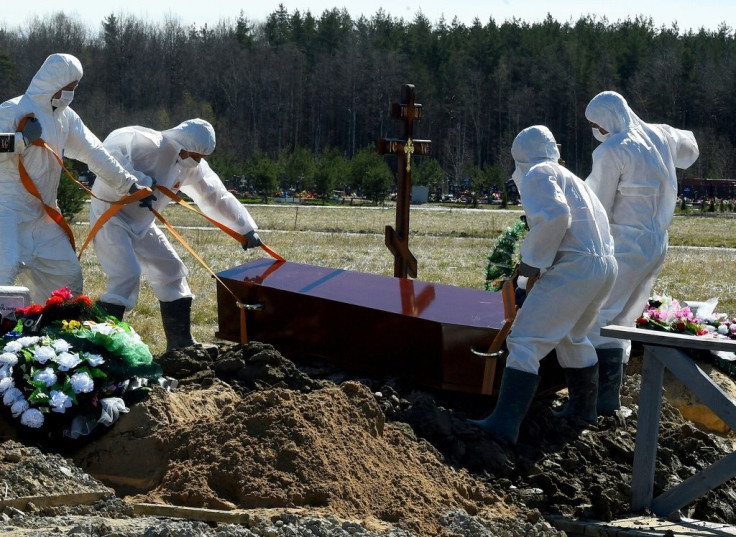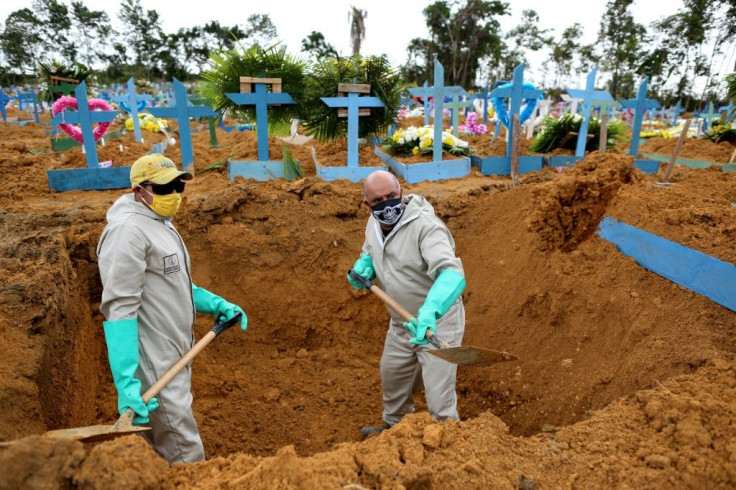Coronavirus Vaccine: 15,600 People Volunteer To Be Infected With COVID-19 For Treatment Studies

KEY POINTS
- Close to 16,000 people from 102 countries are ready to volunteer to speed up a vaccine for COVID-19
- They're prepared to inhale SARS-CoV-2
- "I definitely think it's going to be pursued," said one doctor
Volunteers worldwide are now enrolling online for an as yet non-existent "human challenge trial" that will allegedly accelerate the development of life-saving vaccines intended to save millions of lives at risk from COVID-19.
Some 15,600 volunteers from 102 countries have enrolled as of 2:00 a.m. ET for this trial at the "COVID-19 Human Challenge Trials" website for this grassroots effort called 1Day Sooner. Enrolment began in late April.
These people have agreed to be infected with SARS-CoV-2 (severe acute respiratory syndrome coronavirus 2), the virus that causes COVID-19, in an attempt to speed-up development of vaccines. They've volunteered to inhale a nasal spray consisting of SARS-CoV-2.
1Day Sooner isn't affiliated with groups or companies developing or funding coronavirus vaccines. Co-founder Josh Morrison hopes to show there's broad support for human challenge trials. He said this type of trial has the potential to deliver an effective coronavirus vaccine more quickly than standard trials, which can last years.
The U.S. Food and Drug Administration (FDA) hasn't ruled out the possibility of a human challenge trial. But it's never allowed a human challenge trial for such a novel disease without a cure.
There are also no plans for such a study in the U.S. No companies have made COVID-19 human challenge trial proposals in the U.S. thus far. The idea, however, has the support of 35 members of Congress that recently asked regulators to consider human challenge trials.
In Europe, London-based hVIVO (a clinical development services business pioneering human disease models based upon viral challenge) and SGS are working to launch challenge studies. The World Health Organization recently released a working document outlining criteria for an ethically acceptable design for such a trial.
"I definitely think it's going to be pursued," said Dr. Matthew Memoli, director of clinical studies at the Laboratory of Infectious Diseases at the National Institutes of Health. "So many things could change, but I think it's likely we could see one at some point in the future."
Vaccines already under development as cures for COVID-19 will take up to two years to develop if fast-tracked. Most of them won't survive the three-phase human clinical trials that might last up to a decade. This fact means an extension of social distancing and community lockdowns until 2022. Health experts agree a worse second wave is certain to arrive this winter.
"It's not every day we give a healthy individual an exposure to a pathogen -- the very same thing doctors are trying to protect people from," said Dr. Nir Eyal, director of the Center for Population-Level Bioethics at Rutgers University. "But it becomes increasingly clear [that] the only sustainable exit from the current health and societal crisis is a vaccine, and there are ways to conduct such a trial that are perfectly ethical."

© Copyright IBTimes 2024. All rights reserved.





















